#Arabies
Explore tagged Tumblr posts
Text
Araba fonetiese fenneeomo ad arabo j. [van gr. ϕωνητικός, der. van ϕωνή «stem, klank araba, arabo »] (pl. m. -ci). – Met betrekking tot fonetiek, in die algemeen, of die verskynsel van fonasie, of foneme in die besonder. en hul stelsel: studies f., soektogte f.; die karakters f., die struktuur f. (van 'n taal, van 'n dialek); f. variasies, f. veranderinge; die evolusie f. van Latyn na Italiaans; wette f., konstante wette wat, in die opvatting van neogrammarici van die laat negentiende eeu, met die rigiditeit van fisiese of biologiese wette, die evolusie van die klanke van 'n taal of 'n dialek sou voorsit (teorie wat deur ander linguiste gekant is, wat, hoewel hulle die praktiese formulering van hierdie wette aanvaar, aanspraak maak op die individuele en historiese karakter van elke linguistiese vernuwing). Handskrif, spelling, skrif f., lokusie. begrip met verskeie tekens: skrif waarvan die tekens enkelklanke verteenwoordig en nie lettergrepe of konsepte nie (daarom is alle alfabetiese skrif so, in teenstelling met geskrifte soos spykerskrif, wat sillabies en in sommige gevalle ideografies is); skrif waarvan die tekens die huidige uitspraak van die taal verteenwoordig en nie die vorige toestand daarvan nie (in hierdie sin kan die fonetiese skrif van Italiaans gekontrasteer word met die etimologiese skrif van Engels); die spelling van die sogenaamde fonetiese alfabette (sien alfabet), waarvan die tekens met besondere strengheid, op grond van wetenskaplike kriteria, ooreenstem met 'n fonetiese werklikheid: dit is die spelling wat in die fonetiese transkripsies gebruik word. genoem, of smal, wat ook die nie-foneties relevante karakters van die foniese entiteite in ag neem, en in die breë of fonemiese, wat slegs die relevante karakters in ag neem vir die doeleindes van die identifisering van die foneme. ◆ Adv foneties, onder die fonetiese aspek, wat fonetiek betref, of in fonetiese spelling: karakters, foneties relevante kenmerke van 'n foneem; skryf, transkribeer 'n woord, 'n sin foneties.
Dr De Beer
0 notes
Text

Al Arabi مجلة العربي (Kuwait Magazine) #211, 1976
#al arabi#العربي#kuwait#saudi arabia#middle east#islam#arabic#arab#arabian#moors#moorish#culture#history#magazines#books#1970's#📖#🇰🇼
1K notes
·
View notes
Text
A hospital administrator in Gaza has refused Israeli orders to evacuate, calling such a move medically “impossible” as he begged the international community to pressure Israel to dial back.
“I am refusing this because I cannot discharge our patients,” Dr Ahmed Mhanna, who manages two Al-Awda Hospital branches, said.
He explained too many patients in his care are suffering from gunshot and shrapnel wounds and cannot be moved.
In a video diary, Mhanna appealed to world political forces to persuade Israel to dial back on rockets being launched in Gaza.
“I'm asking all members, international societies, and Red Cross and WHO, and in law societies international to (put) pressure on the Israeli government to stop these procedures against the civilians and to stop that attack,” he said.
“Stop the war. Stop the bombs being against our civilians.”
(continue reading)
#politics#palestine#israel#gaza#war crimes#al ahli al arabi hospital#hamas ≠ palestine#ceasefire#collective punishment#ahmed mhanna#dr ahmed mhanna#idf stop bombing hospitals challenge#ceasefire now
3K notes
·
View notes
Text

refaat alareer - "let it be a tale"
A Palestinian poet who was martyred by an Israeli air strike on 7th of December.
Translation by (@tameeolivefern)
Poem in English and Arabic:
إذا كان لا بد أن أموت
فعليك أن تحيا
لتقص قصتي
لتبيع أشيائي
لتشتري قطعة قماش
و بضعة خيوط
(لتكون بيضاء بذيل طويل)
حتى طفل في مكان ما في غزة
يحدق بالسماء
ينتظر اباه الذي غادر على عجل
بلا أن يودع أحدًا
حتى جسده
حتى نفسه -
يرى الطائرة الورقية طائرتي التي صنعتها
تحلق عاليا
و يظن لوهلة أن ملاكًا عاليا
يُعيد الحب
إذا كان لا بد أن أموت
لتجعلها تحضر الأمل
لتجعلها قصة
If I must die,
you must live to tell my story
to sell my things
to buy a piece of cloth
and some strings,
(make it white with a long tail)
so that a child, somewhere in Gaza
while looking heaven in the eye
awaiting his dad who left in a blaze-
and bid no one farewell
not even to his flesh
not even to himself-
sees the kite, my kite you made, flying up
above
and thinks for a moment an angel is there
bringing back love
If I must die
let it bring hope
let it be a tale
#currently my Arabi calligraphy is incomprehensible so apologies#palestine strike art#free palestine#palestine#from the river to the sea palestine will be free#refaat alareer#ceasefire#my artwork#watercolor#Arabic calligraphy
1K notes
·
View notes
Text
Black magic, daughter of night.
— Abdelwahab Meddeb, Tombeau of Ibn Arabi and White Traverses, transl by Charlotte Mandell, (2010)
#Tunisian#Abdelwahab Meddeb#Tombeau of Ibn Arabi and White Traverses#Charlotte Mandell#(2010)#Essence
143 notes
·
View notes
Text
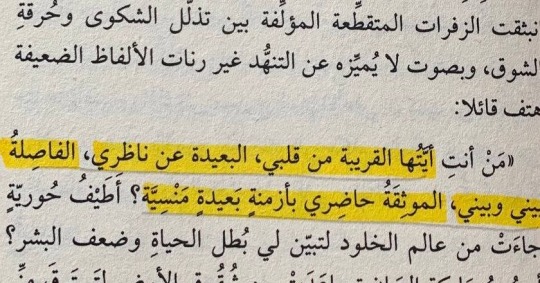
#حب#اقتباس#اقتباسا��#فصحى#ادب#شعر#موسيقى#عرب تمبلر#سكرة موسيقى#اغنيه#تمبلر#تمبلر عربي#تمبلريون#تمبلريات#arabie saoudite#itsui#tumblr#نصوص ادبيه#اقتباسات تمبلر#صور تمبلر#poets on tumblr
384 notes
·
View notes
Photo





Art by Pegah Arabi
1K notes
·
View notes
Text
Again here to promote a beautiful fanfic again signature by @always-arabis go and read
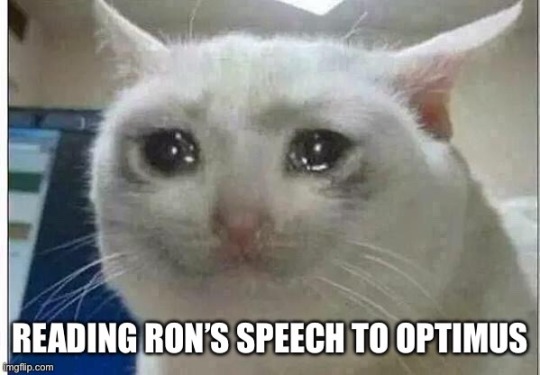

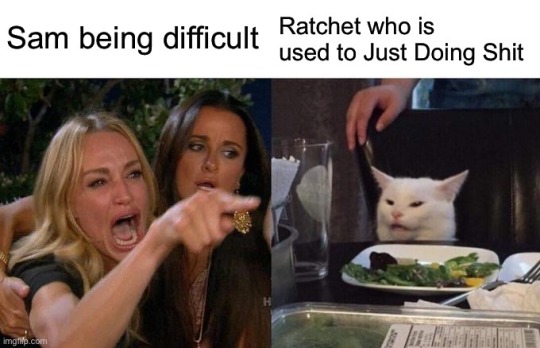
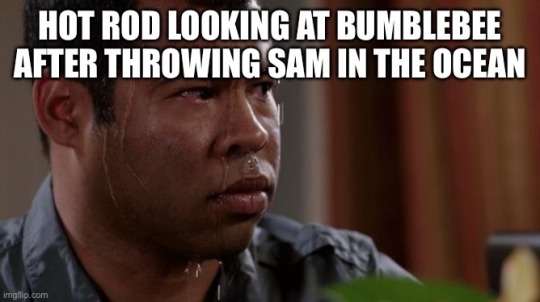



^ not how that scene went but I think this is funny

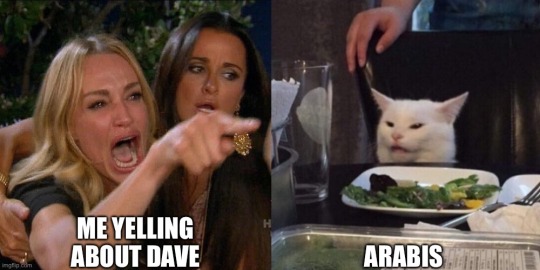
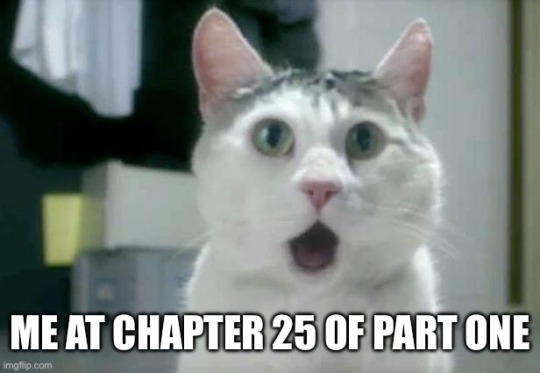
(These are all part one related unlike my first batch of memes I made)
#transformers#bumblebee#bumblebee transformers#sam witwicky#Sam and bumblebee#optimus prime#ratchet#ratchet transformers#william lennox#transformers fanfiction#signature#signature arabis
168 notes
·
View notes
Text
Through her, in a rush of musk and saffron, beauty falls into disarray.
Ibn Al-`Arabi (1165-1240), final stanza to Tigris song
from here
54 notes
·
View notes
Text
Taylor Swift Can't Write- She is not a serious or important writer. She is blatantly normalizing cheating in her music.
Let’s talk about Taylor Swift’s honest attempt at coherent narrative -
Just to be clear, the songs in question: Betty (2020), August (2020), and Cardigan (2020).
In these songs, Swift, of her own insistence, makes a clear attempt at drafting together a coherent storyline. I, however, found her work lacking while considering it against the many thousands of other short stories I have read. It lacks any sincerity in giving the moment in which the characters experience self-reflection, or "Epiphany" moment, and growth.
An Epiphany is defined as a sudden spiritual manifestation- and it is this I would posit as something that Swift clearly lacks in her writing. She lacks the spiritual, or emotional, depth to accurately tell a so-called "coming-of-age" type story in which the main requirement is that the character has an "Epiphany" about the nature of life to signify them growing up.
I will explain:
A short story- which I am analogizing to the multi-song arch from Swift- is typically meant to have an epiphany moment in which the main character finally calcifies the main point or the moral of the story. Without the impact of this moment within a short narrative- there is no arc, no moral, and therefore no real story.
Afterall, what is a story, but a coherent subsistence of writing aimed at identifying some universality of human existence (eg.) a moral, a point, or the main message? If I want to get philosophical about it (and I always do), narrative is the act of creation through which the particulars become implicit to a universal experience. Thus, it is a necessity of storytelling- to include the thematic message- or moral backbone of the work.
Swift’s three song arc is intrinsically incoherent, so it becomes difficult to pinpoint exactly what each character is thinking or feeling. I would, however, suggest that through lines like “slept next to her, but / I dreamt of you all summer long” (“Betty” 2020), and lines like “I never needed anything more/ whispers of ‘Are you sure?’ / ‘Never have I ever before’” (“August” 2020). Therein builds an internal tension between the three characters, James seems to be lamenting his choices to sleep with August and ditch Betty for the summer; whereas August is honestly expressing the fact that this is her first time, so it becomes obvious this means a lot to her. First, we see James's apologizing to Betty saying that the other girl, essentially means nothing by saying he was dreaming of Betty all summer even while with August. We also get the other perspective of the other girl losing her virginity to James during the same summer in which he is thinking about Betty every night.
Already, all the characters are set up to be dislikable- which is not always to the detriment of storytelling. However, it is to the detriment of her storytelling that at no point Swift makes use of external POV, or internal POV, to show any form of personal growth or condemnation of the intuitively morally corrupt actions of James here. Thus, there is no real story- according to the theory of “short-story” telling I laid out above.
It is her lack of condemnation towards cheating- and the immature irreverence James treats August with- that solidifies this arc as being a rather poor attempt at coherent narrative. Simply, Swift is either an inept storyteller- or she is blatantly normalizing cheating while also treating “the other woman” like a placeholder. (Clearly, Anti-Feminist rhetoric, btw). It’s especially bad that this storyline reaches no “moral of the story” since it is so obviously August’s first time.
The closest we get to any kind of meta-narrative commentary on thematic point, from Swift as the external 3rd person POV, is with this line “A friend to all is a friend to none/ Chase two girls, lose the one/ When you are young, they assume you know nothing” (“Cardigan” 2020). Again, her use of POV is rather amateurish- because she returns to internal 1st person POV with use of the word “you” in the latter half of the line- which leads me to believe she really doesn’t know how to inculcate the different POV’s into her writing. She’s an amateur- and there's is nothing inherently wrong with that, however, if we could all stop lauding her as literary genius when she is so clearly not that would be “awesome.” Thanks.
She continues the rest of the song back into Betty’s 1st person POV. The poignant nature of this line about "losing one girl" doesn’t land because the rest of the song is about how James is returning to Betty. Swift writes, “I knew you’d miss me once the thrill expired/ and you’d be standing in my front porch light/ And I knew you’d come back to me” (“Cardigan” 2020). Beside the fact that this line is internally incoherent held up against the setting of “Betty” which is broad daylight, so James would not actually be in the porch light if the sunlight suffices, it is also quite obviously the culmination in which Betty is taking James's back. If there is any thematic message here- and I can only loosely believe this is an actual message here- Swift is saying that cheating is Okay as long as the girl, you actually respect and want, is willing to forgive you.
And I’m supposed to enjoy this arc? People are supposed to be impressed with Swift because she came up with this garbage?
She clearly has no grasp on Narrative coherence, no grasp of utilizing POV switching to make narrative more emotionally impactful, and no grasp on how to embed a good moral of the story into her work. So, she has none of the markings of actual great writer.
The effect of all this is a subterfuge of lackluster emotional appeals- and a toxic love triangle that never resolves into personal self-reflection or growth. The story devolves into blameless banality with no personality or literary value whatsoever- just a reiteration of self-centered egoism that enables James to act without thought to the feelings of others. This is what Swift propagates as good storytelling? Is this morally sound story telling?
Let me further drive my point home by dichotomizing this pitiful attempt at narrative coherence with the work of a literary genius, James Joyce.
Has anyone here ever read “Araby” (1914) by James Joyce? (Sidenote: If you love when Hozier talks about issues of British colonialism in Ireland- you will most likely enjoy James Joyce as well- if you love critique of both organize religion and its sociohistorical ties to colonialism- you'll love Joyce).
My critique too- ties into Joyce, where he showcases the blissful ignorance, or naivety, of youth in pursuit of love, Swift showcases no such thing. She is often praised for her juvenile writing schema- yet in her most overt attempt at writing a youthful romance she fails to interject the most important aspect of youth- Naivety versus painful realizations. In adulthood, when we all reprise the past, and trace back into our memories, we often speak fondly of the naivety of youth- with a little knowing twinkle in our eyes as young people around us make the same mistakes we did. It’s so beautifully human to reflect like this- and Swift manages to add nothing of this universal human experience into her work, even though it is often said that her only saving grace is the ability to capture “teenage petulance” and the proclivities of youth. In other words, I’m saying she’s not even doing the thing she’s known for well enough. She writes this love story like they’re all a bunch of bitter adults, not kids stepping into thoughts of love for the first time. There’s no simple wonder at love- instead, she writes about cheating and feeling jaded. Ditching people for the summer only to come back to the first girl with an "I'm sorry" and "she meant nothing." Where is the personal growth in a story like that? In which James gets away with saying "she meant nothing," and August is not shown having any agency or reclamation of self after James essentially uses her. Then, to top it all off, Betty most likely gets back together with James. There is no growth to speak of in any of this- it does not qualify as a "coming of age" story- nor does it particularly qualify as a story at all.
This is like English Creative Writing 101 class- btw. It's strange that Swift does not grasp concepts I've taught to college freshmen before. If the freshmen can handle learning it- surely Swift could also be able to learn and improve the thing she does as a job? Right? No?
“Araby” is a story of a similar predicate to Swift attempt at narrative. So, I thought it most apt to include here as an example which also employs use of Epiphany in short story telling.
In quick summation, “Araby” is the story of a young boy who has a rather intense crush on a neighbor girl. He promises this girl that he will go buy her something at the market, and in doing so sets off a sequence of events which leads to his ultimate disillusionment with the ideals of youth and love.
Early on in his character development, we see a boy who has an overly romantic view on life, with lines like “All my senses seemed to desire to veil themselves and, feeling that I was about to slip from them, I pressed the palms of my hands together until they trembled, murmuring: ‘O love! O love!’ many times” (“Araby” Joyce). He is so clearly caught up in the longing for this girl- that he truly forgets reality for a moment. His senses slip from him, and he is fully immersed into the lost revery of his little crush on the neighbor girl. Then, like magic, she speaks to him for the first time the next day. She asks him if he will go to the market, and he responds eagerly- Yes. He promises to buy her something.
The conflict of the story happens at this point- the young boy meets every obstacle in life preventing him from getting to the market on time. He struggles to find money and then he struggles to find the time in the midst of his other obligations to his family. Joyce is clearly showcasing how our romantic visions of life, of everything going perfectly and romance being easy, can so easily be disrupted by the realities of poverty and the responsibility we all bear for family or others.
The end of the short story outlines the “moral of the story” in which the young man, now nearly too late for the market and without enough money to actually buy anything, with the last refrain that “Gazing up into the darkness I saw myself as a creature driven and derided by vanity; and my eyes burned with anguish and anger” (“Araby” Joyce). Thus, Joyce drives home the "epiphany" moment, or the self-reflective moment of character growth, as it pertains to the fruitless endeavors of youthful vanity in romance. Stating, essentially, that people only dream of overly romantic scenes to bolster their own perception of reality as something that should go perfect for them. Life is not perfect, nor is it ever fair, and nothing happens as fantasy suggests it should- this is the hardest, and often the first, life lesson young people ever face. Anguish and Anger. What a beautiful phrase to remark upon- as this poor young man realizes life is comprised mostly of being “a day late and a buck short.”
This intensity- this moral backbone is what brings the story to life. The way this story enumerates the youthful hope- to the burgeoning adult reality- as something full of anguish -allows readers to bridge empathy towards others as WE all grow up in a difficult world. This is the "Epiphany." This appeal universal human experience, through particular circumstances like that of a young man in early 1900’s Dublin, is what is missing in Swift’s work. She gives us nothing but her own selfish refraction of immoral behavior without any appeal to greater human impulse or discovery. Her work rings hollow in the face of actually talented writers like Joyce. She lacks the same depth, sophistication, and ability to actually make the story into a narrative arc.
She claims to write about teenage, coming of age-esque, discovery yet lacks any ability to actually showcase, with empathy, the ways in which anguish at their own naïveté presupposes teenage petulance.
She writes out the most shallow- surface level depiction of some b-plot from a bad fanfiction and wants to pretend that she is a literary genius. Yawn.
Addendum- I am aware that “Araby” is also a story predicated on ideas of Freedom vs Colonialism. To those of you who know the story well, I hope you don’t mind I choose to focus in on the “coming-of-age" part of the story in order to more clearly connect it to Swift’s work. I am not, however, ignoring the real sociohistorical implications of poverty, colonialist attitudes, and human rights thematic points in the story. I know.
“Araby” by James Joyce is free at The Project Gutenberg eBook of Dubliners, by James Joyce
#anti taylor swift#fuck taylor swift#taylor swift critical#toxic taylor swift#toxic swifties#ex swiftie#anti swifties#james joyce#Araby#literary criticism#taylor swift criticism#folklore#betty#cardigan#august#literary theory#literary analysis#if you love#hozier#you will also love James Joyce
84 notes
·
View notes
Text


Sürekli iyiliğinden söz edeni, bir gün elinden çıkıveren bir kötülük utandırarak susturur…
272 notes
·
View notes
Text



Olmuş olan, olacak olanlar arasında en hayırlı olandır..
37 notes
·
View notes
Text

Al Arabi مجلة العربي (Kuwait Magazine) #270, 1981
#al arabi#العربي#kuwait#saudi arabia#middle east#palestine#islam#arabic#history#culture#magazines#1980's#📖#🇰🇼#🇵🇸
131 notes
·
View notes
Text







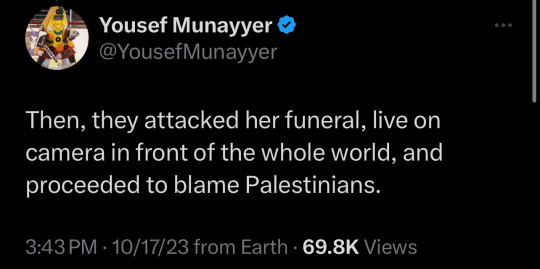
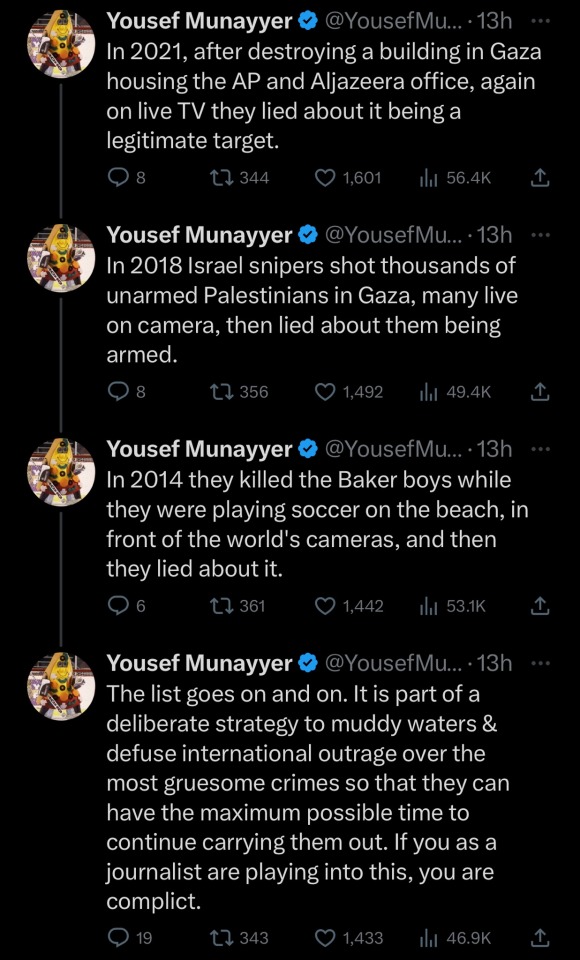
IDF stop committing war crimes challenge
👉🏿 https://www.aljazeera.com/news/2023/10/12/war-crime-gaza-medics-say-israel-targeting-ambulances-health-facilities
#politics#palestine#gaza#israel#al ahli al arabi hospital#disinformation#misinformation#hamas ≠ palestine#collective punishment#war crimes#bds#genocide#boycott divest sanction#israel is an apartheid state#settler colonialism#ceasefire#ceasefire now#al shifa hospital#never again#never again to anyone
1K notes
·
View notes
Text
youtube
34 notes
·
View notes
Text
In your name, I enter into bliss, captive in the fortress of your desire, I am your target, your arrows puncture me.
— Abdelwahab Meddeb, Tombeau of Ibn Arabi and White Traverses, transl by Charlotte Mandell, (2010)
98 notes
·
View notes